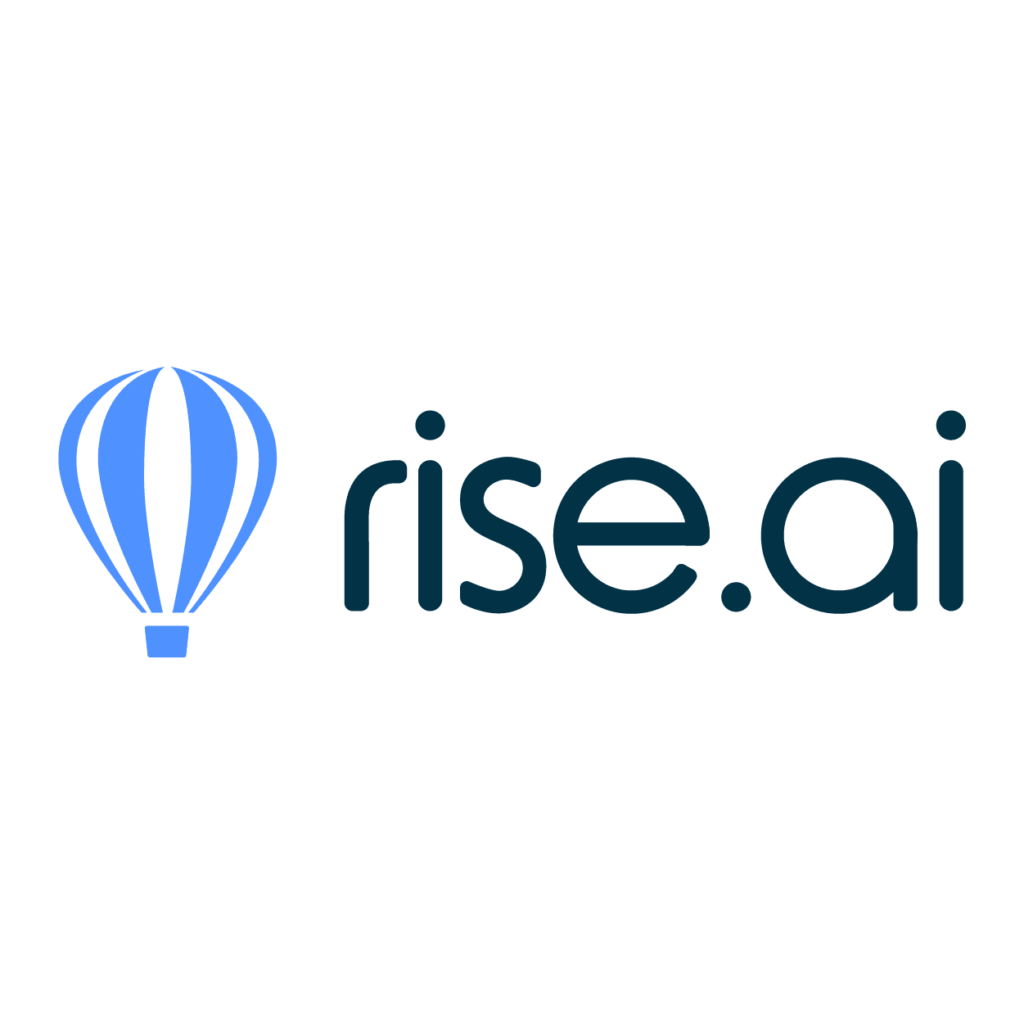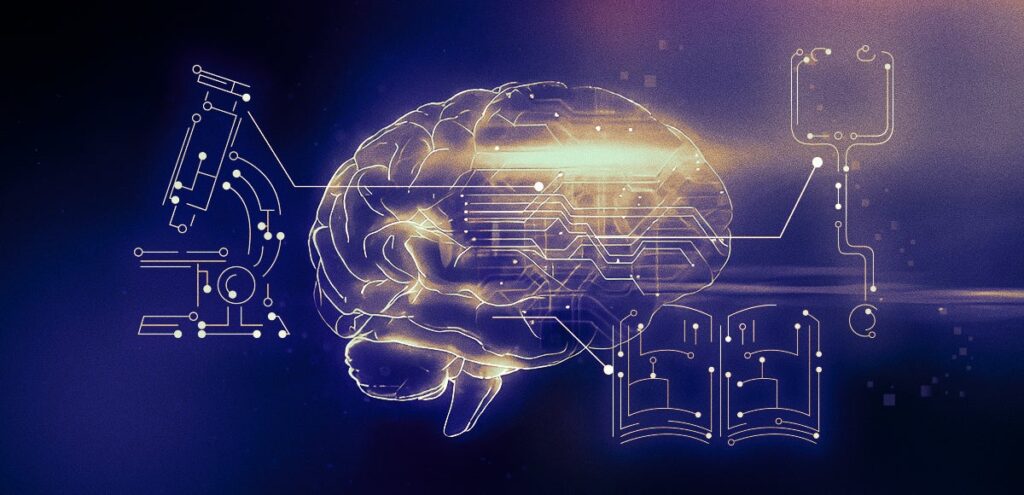Rise Ai leverages artificial intelligence to provide innovative solutions for businesses. This SEO-friendly content introduces Rise Ai and its role in helping businesses harness the power of AI to drive growth and success.
Whether it’s automating repetitive tasks, enhancing customer experiences, or improving decision-making processes, Rise Ai offers tailored AI solutions that cater to diverse business needs. By employing cutting-edge machine learning algorithms and advanced data analysis, Rise Ai empowers businesses to optimize their operations, drive efficiency, and unlock new opportunities.
With Rise Ai as a reliable partner, businesses can embrace the transformative potential of AI and stay ahead in an ever-evolving digital landscape.
The Evolution Of Ai
AI, or Artificial Intelligence, has come a long way since its origins, evolving into a powerful tool that has transformed numerous industries. Understanding the evolution of AI is key to appreciating its impact on society today and the potential it holds for the future.
The Origins Of Ai
AI has its roots in early human fascination with creating machines that can mimic human intelligence. The origins of AI can be traced back to the mid-20th century when innovative thinkers began exploring the possibilities of building machines capable of intelligent behavior.
The Development Of Ai Over The Decades
Over the decades, AI has undergone significant development, driven by technological advancements and innovations. The early stages of AI involved rule-based systems that relied on a set of pre-determined instructions. However, with the advent of machine learning algorithms and data processing capabilities, AI has evolved into a more sophisticated and adaptable technology.
During the 1980s, the field of AI experienced what is known as the “AI winter,” where progress slowed due to limited computing power and the inability to handle complex problems effectively. However, with the emergence of more powerful computers and advancements in algorithms, AI experienced a resurgence in the 21st century.
The Impact Of Ai On Various Industries
AI has revolutionized various industries, driving efficiency and innovation. From healthcare to finance, transportation to retail, AI has found applications in almost every sector. Here are some examples:
- Healthcare: AI-powered diagnostic tools can analyze medical data and help identify potential diseases at an early stage for better treatment outcomes.
- Finance: AI algorithms are used to detect fraud, analyze market trends, and automate financial processes.
- Transportation: AI is transforming transportation with self-driving cars, optimized route planning, and predictive maintenance.
- Retail: AI-powered chatbots and recommendation systems provide personalized customer experiences and improve sales.
These are just a few examples of how AI is reshaping industries and transforming the way we work and live. As AI continues to develop and advance, the possibilities are endless, and its impact will only become more profound.
Applications Of Ai In Everyday Life
Artificial Intelligence (AI) is revolutionizing the world we live in, making everyday tasks more efficient and convenient. From personal assistants to healthcare, transportation, and finance, AI is reshaping industries and enhancing the way we live. Let’s explore some of the remarkable applications of AI in our daily lives.
Ai In Personal Assistants
Personal assistants powered by AI, such as Siri, Google Assistant, and Amazon’s Alexa, have become an integral part of our lives. They help us manage our schedules, answer inquiries, and perform simple tasks through voice commands. With AI technology, these personal assistants continue to evolve, becoming more intelligent and capable of understanding our needs and preferences, contributing to a personalized and streamlined user experience.
Ai In Healthcare
A major breakthrough in AI has been its incorporation into the healthcare industry. AI algorithms can analyze vast amounts of medical data, helping doctors diagnose diseases with greater accuracy and speed. AI-powered robotic surgery assists surgeons, enhancing precision and reducing recovery time for patients. AI also plays a crucial role in drug discovery, improving the efficiency of the research process, and potentially speeding up the development of life-saving medications.
Ai In Transportation
AI is transforming the way we commute and travel. Self-driving cars, equipped with AI technology, have the potential to decrease accidents caused by human error. AI algorithms can analyze real-time data from various sources, helping with traffic optimization and reducing congestion on roads. Additionally, AI-powered logistics systems can optimize supply chain management, enhancing the efficiency of delivery services and reducing costs.
Ai In Finance
AI is gaining ground in the financial sector, revolutionizing how we manage money. AI-powered chatbots assist customers with routine financial tasks, such as checking account balances or making transactions. Fraud detection systems utilize AI algorithms to identify suspicious financial activities and prevent unauthorized access. Additionally, AI-based trading systems analyze market trends and patterns, helping investors make informed decisions.
Challenges And Concerns Of Ai
Rise AI presents both challenges and concerns in the field of Artificial Intelligence, including ethical implications, job automation, and data privacy. These issues require careful consideration and proactive measures to ensure a responsible and beneficial use of AI technology.
Ethical Implications Of Ai
One of the major challenges surrounding the rise of AI is the ethical implications it raises. With the ability to make decisions and perform tasks autonomously, AI systems have the potential to impact our moral values and principles.
There is an inherent concern about the ethical decision-making capabilities of AI, as these systems are programmed to prioritize certain factors over others, which may not always align with human values. This raises questions about the accountability of AI when faced with ethical dilemmas.
The impact of AI on job displacement and unemployment is another crucial concern. As AI technology advances, the fear of machines replacing human workers becomes more prevalent. Jobs that were once performed by humans are increasingly being automated, causing a potential loss of employment opportunities.
Job Displacement And Unemployment
The rise of AI has ignited debates about the social and economic consequences of widespread job displacement. With the ability to perform tasks more efficiently than humans, AI threatens to eliminate certain job roles entirely, leaving many individuals unemployed.
This raises concerns about the future of work and the need for reskilling and retraining programs to ensure individuals can adapt to the changing job landscape. Additionally, job displacement may result in increased inequality and socioeconomic disparities, as certain sectors are more susceptible to automation than others.
Privacy And Data Security
With the rapid advancement of AI, concerns surrounding privacy and data security have become increasingly pertinent. AI relies on vast amounts of data to learn and make accurate predictions, raising questions about the safeguarding of personal information.
There is a growing apprehension about the potential misuse or abuse of personal data collected by AI systems. Sensitive information, such as health records or financial data, can be vulnerable to breaches or unauthorized access, leading to privacy infringements and identity theft.
Efforts must be made to establish robust data protection regulations and frameworks that ensure the privacy and security of individuals’ data, while still allowing the development and implementation of AI technologies.

Credit: apps.shopify.com
Ai And Automation
With the rapid advancements of technology, Artificial Intelligence (AI) and automation have emerged as powerful tools revolutionizing various industries. AI, coupled with automation, has the potential to streamline processes, enhance efficiency, and reduce human effort in a multitude of tasks. In this article, we will explore the role of AI in automation and discuss its benefits and drawbacks in job implementation.
Ai’s Role In Automation
AI plays a pivotal role in automation by enabling machines and systems to perform tasks that previously required human intervention. Through machine learning algorithms and extensive data analysis, AI systems can learn from patterns, make predictions, and carry out complex actions efficiently. By integrating AI into automation processes, companies can achieve higher accuracy and faster execution, leading to increased productivity and cost savings.
Benefits And Drawbacks Of Automating Jobs With Ai
Automating jobs with AI brings along a range of benefits and drawbacks. Let’s weigh them:
| Benefits | Drawbacks |
|---|---|
|
|
While the benefits of automating jobs with AI are evident in terms of increased efficiency, cost savings, and improved accuracy, it is crucial to consider the drawbacks as well. Striking the right balance between human talent and AI-driven automation is essential to harness the full potential of these technological advancements.
Ai In Business
Rise AI is revolutionizing businesses with its advanced artificial intelligence technology, streamlining operations and enhancing decision-making processes. Harnessing the power of AI has become essential for businesses to stay ahead in today’s competitive landscape.
AI is revolutionizing the way businesses operate, offering new and exciting opportunities to optimize processes, improve customer experiences, and drive growth. With its ability to analyze large amounts of data and make intelligent decisions, artificial intelligence has become indispensable in various sectors. In this blog post, we will explore the significant role of AI in customer support, marketing and sales, and predictive analytics.
Ai For Customer Support
AI-powered chatbots and virtual assistants are transforming the customer support landscape. By using natural language processing and machine learning algorithms, these intelligent systems can understand customer queries, provide accurate information, and assist with problem-solving. Additionally, AI enables businesses to offer 24/7 support, effectively handling a high volume of inquiries and reducing customer waiting times. These automated solutions improve customer satisfaction, increase efficiency, and free up human support agents to focus on more complex issues.
Ai In Marketing And Sales
Artificial intelligence empowers businesses with advanced marketing and sales capabilities, enhancing personalized communication and boosting conversion rates. AI algorithms analyze customer data to identify patterns, behaviors, and preferences, enabling businesses to tailor their marketing campaigns and offers to individual customers. By delivering targeted messages to the right audience at the right time, AI helps businesses generate more leads, nurture relationships, and ultimately drive sales. Additionally, AI-powered tools like predictive analytics and recommendation engines assist in optimizing pricing strategies, inventory management, and customer segmentation.
Ai For Predictive Analytics
Predictive analytics is another area where AI is transforming the way businesses operate. By leveraging machine learning algorithms, AI can predict future outcomes and trends based on historical data. This enables businesses to make data-driven decisions, optimize resource allocation, and identify potential risks. AI-powered predictive analytics models can be used in various scenarios, including demand forecasting, fraud detection, supply chain optimization, and risk assessment. These insights provide businesses with a competitive advantage, allowing them to stay ahead of the curve and make proactive decisions.

Credit: rise.ai
Ai In Education
AI, or Artificial Intelligence, has revolutionized numerous industries, and education is no exception. With the advent of AI in education, learning has become more personalized, assessments more efficient, and teaching more effective. Let’s explore the various applications of AI in the realm of education.
Ai For Personalized Learning
In traditional classrooms, teachers often face the challenge of catering to the diverse learning needs of their students. AI offers a solution to this issue by providing personalized learning experiences. By analyzing vast amounts of data, AI algorithms can understand each student’s strengths, weaknesses, and learning patterns.
This data-driven approach enables AI-powered educational platforms to tailor content and activities to suit the individual needs of each student. Whether it’s presenting concepts in different formats, adapting the difficulty level of exercises, or providing instant feedback, AI ensures that students receive a personalized learning experience that optimizes their educational journey.
Ai In Educational Assessments
Assessments play a crucial role in evaluating students’ progress and identifying areas for improvement. However, conducting assessments manually can be time-consuming and subject to human error. AI offers a more efficient and accurate alternative.
AI-powered assessment systems can automatically grade assignments, quizzes, and exams, saving teachers valuable time. These systems utilize machine learning algorithms to compare students’ responses with pre-determined criteria and provide instant and objective feedback. Furthermore, AI can identify patterns in students’ performance, allowing educators to gain valuable insights and adapt their teaching strategies accordingly.
Ai As A Teaching Tool
AI doesn’t only benefit students; it can also enhance teaching methods. AI can be utilized as a powerful teaching tool, supporting educators in various ways. For instance, intelligent tutoring systems equipped with AI algorithms can guide students through complex concepts, providing explanations and clarifications in real-time.
Moreover, AI can assist teachers in educational content creation, recommending resources, and materials that align with specific curriculum objectives. With AI’s ability to process and analyze large amounts of data quickly, educators can stay updated with the latest educational research and best practices.
In conclusion, AI has opened up exciting possibilities in the field of education. With its potential for personalized learning, efficient assessments, and enhanced teaching methods, AI is revolutionizing the way we approach education. As we continue to explore and harness the power of AI, the future of education holds immense potential for transforming learning experiences and empowering both students and educators.
Future Trends In Ai
As artificial intelligence continues to advance at a rapid pace, there are several future trends that are shaping the field. These trends are set to revolutionize the way we interact with technology and will have a profound impact on various industries. In this blog post, we will explore three key trends in AI: Deep Learning and Neural Networks, AI-Enabled Robotics, and The Rise of Explainable AI.
Deep Learning And Neural Networks
Deep learning and neural networks are two interconnected concepts that are at the forefront of AI research. Deep learning refers to the use of artificial neural networks with multiple layers to process and analyze large amounts of data. This approach has the potential to unlock the true power of AI by enabling machines to learn and make decisions in a more human-like manner. With deep learning, AI systems can recognize patterns, understand natural language, and even perform complex tasks such as image and speech recognition.
Ai-enabled Robotics
AI-enabled robotics is another trend that is set to transform various industries. By combining AI technologies with robotics, we can create machines that have the ability to perceive, understand, and interact with their environment. These AI-enabled robots can be used in manufacturing, healthcare, agriculture, and many other sectors to automate tasks, increase efficiency, and enhance productivity. From autonomous vehicles to intelligent drones, AI-enabled robotics is opening up new possibilities and revolutionizing the way we work and live.
The Rise Of Explainable Ai
Explainable AI is a concept that focuses on making AI systems more transparent and understandable. While AI algorithms are becoming increasingly complex and powerful, it is often challenging to understand how they arrive at their decisions. This lack of transparency can limit the adoption and trust in AI systems, particularly in critical applications such as healthcare and finance. Explainable AI aims to address this issue by providing explanations and insights into how AI systems make their decisions. By making AI algorithms more explainable, we can ensure ethical and responsible use of AI technology.
Ai And Ethics
Rise AI explores the complex intersection of artificial intelligence and ethics, addressing the growing concerns surrounding the ethical implications of AI implementation. Dive into the discussions surrounding AI ethics and its implications for society.
As AI continues to transform various industries, its ethical implications have also come under scrutiny. Balancing the potential benefits of AI with the need to ensure ethical considerations is crucial. It requires a transparent and accountable approach, robust frameworks to address biases and discrimination, and regulatory measures to guide its development and deployment.
Transparency And Accountability In Ai
Transparency and accountability are key principles that must be incorporated into AI systems to address ethical concerns. It is essential for organizations to provide clear explanations of how AI algorithms make decisions, ensuring transparency in their operations. By doing so, individuals can better understand the basis of AI-generated outcomes, fostering trust and reducing potential harm.
Accountability in AI involves holding organizations responsible for the impact of their AI systems. This includes identifying potential risks and biases, taking measures to rectify them, and providing avenues for grievance redressal. An accountable approach ensures that the benefits of AI are not overshadowed by unintended consequences or unfair outcomes.
Addressing Bias And Discrimination In Ai
Bias and discrimination can inadvertently find their way into AI systems, posing significant ethical challenges. Addressing these issues requires a proactive approach centered on fairness and inclusivity. Organizations must invest in diverse datasets that accurately represent different demographics and avoid reinforcement of existing biases.
To ensure fairness, it is essential to regularly evaluate AI algorithms for bias and discrimination. This can be achieved by using multiple evaluation metrics and involving diverse teams in the development process. Additionally, continuous monitoring of AI systems can help identify and rectify instances of bias, reducing the potential harm caused to individuals or marginalized groups.
Regulatory Frameworks For Ai
Establishing regulatory frameworks is a crucial step in guiding the ethical development and deployment of AI. These frameworks provide guidelines and policies to ensure compliance with legal and ethical standards. They outline responsibilities, set transparency and accountability expectations, and promote the use of unbiased and non-discriminatory AI systems.
Regulatory frameworks can also play a vital role in addressing potential risks associated with AI. They can require organizations to conduct impact assessments, provide documentation on algorithmic decision-making processes, and establish mechanisms for oversight and public scrutiny. Such measures help maintain public trust and reinforce ethical practices across the AI landscape.

Credit: www.calcalistech.com
Frequently Asked Questions For Rise Ai
What Is Rise Ai And How Does It Work?
Rise Ai is an advanced artificial intelligence platform that leverages machine learning algorithms to analyze data and make intelligent predictions. It learns from patterns and trends to provide valuable insights and automate decision-making processes, ultimately driving business growth and efficiency.
Why Should Businesses Consider Using Rise Ai?
By using Rise Ai, businesses can unlock the power of data and gain a competitive edge. This AI platform enables accurate predictions, faster decision-making, and efficient automation, leading to improved operational efficiency, cost savings, and increased revenue. Rise Ai empowers businesses to make data-driven decisions and stay ahead in the ever-evolving digital landscape.
How Can Rise Ai Benefit Different Industries?
Rise Ai has applications across various industries, including finance, healthcare, marketing, and manufacturing. It can help financial institutions detect fraud, healthcare providers enhance patient care, marketers optimize campaigns, and manufacturers streamline processes. Rise Ai’s versatility and adaptability make it a valuable asset for organizations across different sectors.
Is Rise Ai Suitable For Small Businesses?
Absolutely! Rise Ai caters to businesses of all sizes. Small businesses can leverage this AI platform to gain competitive advantage, improve customer experience, and optimize their operations. Rise Ai offers scalable solutions, ensuring that small businesses can benefit from advanced analytics and automation without incurring significant costs.
Conclusion
Rise AI is revolutionizing the way businesses operate by harnessing the power of artificial intelligence. Its advanced algorithms and machine learning capabilities offer unprecedented insights and efficiencies. By leveraging this cutting-edge technology, organizations can optimize processes, enhance decision-making, and achieve significant cost savings.
Embracing Rise AI will undoubtedly position businesses at the forefront of innovation and success in the digital age. Upgrade your operations with Rise AI and stay ahead of the competition. Harness the power of AI today!




